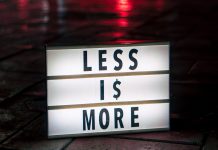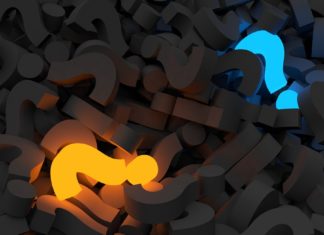Self-reflection takes learning from experience to a whole new level.
It is particularly useful for salespeople who want to evolve their skills and know how to offer the best solution for their clients. It is as critical a sales tool as asking meaningful questions and active listening.
Without self-reflection, salespeople can find themselves employing the same sales techniques repeatedly, using their standard defaults, while still expecting a different result.
Self-reflection allows you and your team to be objective and look for ways to enhance your skills and create better outcomes.
Every conversation, phone call, product demonstration, meeting and email contains gems to be extracted and learn from to develop valuable skills and ways to apply these learnings other situations. The words and phrases used and the questions asked all impact on your success.
Self-reflection is a typical activity of people with high emotional intelligence (EI).
The Institute for Health and Human Potential defines EI as the ability to:
- Recognize, understand and manage our own emotions,
- Recognize, understand and influence the emotions of others.
This means being aware that emotions can drive our behaviour and impact people—positively and negatively—and learning how to manage those emotions—both our own and others—especially when we are under pressure. It’s a scientific fact that emotions precede thought. When emotions run high, they change the way our brains function, diminishing our cognitive abilities, decision-making powers, and even interpersonal skills.
They say key times to manage Emotional Intelligence are when:
- Giving and receiving feedback,
- Meeting tight deadlines,
- Dealing with challenging relationships,
- Not having enough resources,
- Dealing with change,
- Dealing with setbacks and failure.
Questions for self-reflection
Self-reflection is the key to learning from experience. The challenge is making the time to invest in self-reflection and asking yourself the right questions.
Ask yourself any of all of these questions depending on how much time you’ve allowed for your self-reflection practice. The more questions you ask and the more time you give yourself, the greater the opportunities to learn.
- Why was I there?
- Who else was there?
- What happened in ‘the meeting/call/…’?
- What was going through my mind at the time?
- How was I feeling before I went into the meeting?
- What were the positive and negative outcomes of the situation?
- What choices did I make?
- What effect did those choices have?
- What should I stop, start and continue doing for next time?
- How do I feel about what happened?
- What do I think about the event?
- What else could I have done?
- How could I improve this for next time?
- Who could I speak with about what happened and ask for some alternate suggestions?
- What do I believe went well?
- What do I think went less well?
- How did I react or contribute to the situation – good or bad?
- How did the other people react or contribute to the situation – good or bad?
- How was this situation like my previous experiences?
- How was this situation different my previous experiences?
- What might have made this a more positive experience for everyone?
- What would I do differently if I faced the same situation in the future?
- Are there any specific skills I need to acquire or develop so I’m prepared to you handle this kind of situation better next time?
With all of the insights that come from these questions, the next step is to take personal accountability for the steps you will take to plan for next time.
By asking ourselves these questions we are also able to understand our clients better. We support ourselves to adapt and evolve. We find ways to overcome challenges.
All sales planning activity is a form of self-reflection. We reflect on past results and our own past behaviours to create more success for the future.


































